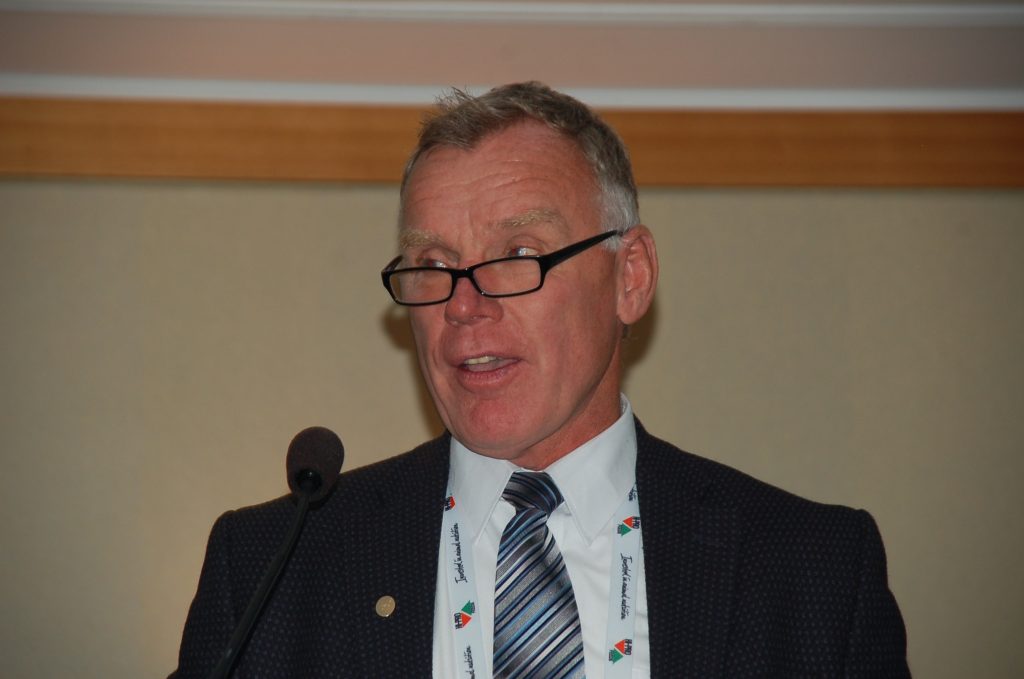
Canadian Hatching Egg Producers update
By David Schmidt- Canadian Poultry
Features Business & Policy annex Association news Business/Policy Canada Company News Livestock Production Poultry Production CHEP chair Jack Greydanus David Schmidt
CHEP chair Jack Greydanus David SchmidtJune 14, 2017, B.C. – Canadian Hatching Egg Producers’ (CHEP) first priority is to match the egg supply with chicken production.
“We are responsible to meet the demand,” CHEP chair Jack Greydanus told the combined B.C. Broiler Hatching Egg Commission (BCBHEC)/B.C. Broiler Hatching Egg Producers (BCBHEPA) annual meeting.
Now that Chicken Farmers of Canada has adopted their differential growth allocation system, he said, CHEP is reviewing and refining its allocation systems so it correctly responds to differential growth in chicken production across the country.
It has been a year of transition for the BCBHEC, as the commission had to work with three chairs. Former chair Casey Langbroek completed five years as chair midway through 2016 and his successor, Greg Gauthier, resigned after just a few months in the job. At the end of December, former B.C. Farm Industry Review Board (FIRB) general manager Jim Collins was appointed to fill the vacancy.
Collins was still with FIRB when the supervisory board released a ruling on an appeal by specialty hatching egg producers last summer. Most observers consider that to be the most scathing ruling FIRB has ever issued, noting it even included awarding costs to the appellants.
Collins told producers he will “ensure the hatching egg commission is as accountable as it can be,” adding it is incumbent on all other stakeholders to be just as accountable. “The relationships in a small industry are critical. We have to work together.”
BCBHEPA president Bryan Brandsma agreed, saying, “We have an industry based on complicated relationships. A successful industry depends on everyone understanding their role and doing it well. I am hoping to change to an era of trust instead of mistrust.”
Greydanus had a similar message, telling producers, “We recognize the importance of relationships and our relationship with the hatcheries is the most important. Having no Category 1 and soon no Category 2 and 3 antibiotics will make that relationship even more important.”
Greydanus said CHEP is also finalizing its new animal care program. After select farms give the program a trial run this year, producers can expect full implementation, including third-party audits, in 2018.
Print this page